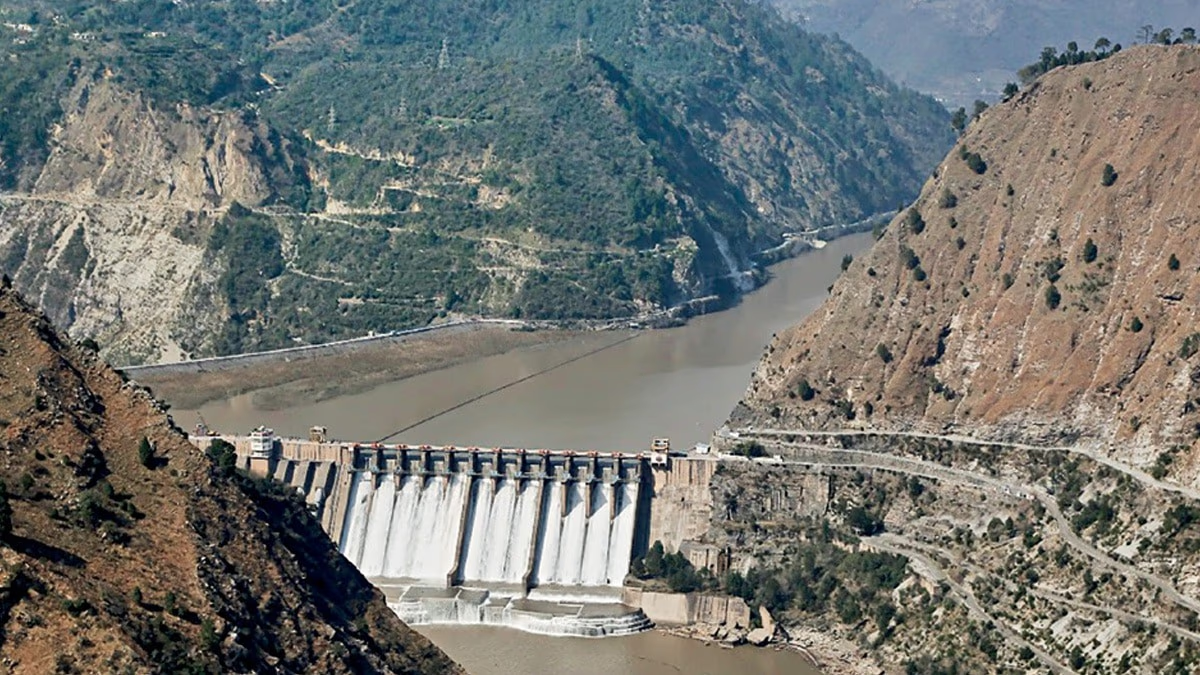After the Pahalgam attack, tensions between India and Pakistan have intensified. India has taken a significant diplomatic step by suspending the historic Indus Waters Treaty of 1960. This move has sent shockwaves through Pakistan, causing leaders to issue warnings. With the suspension of the Indus Waters Treaty, Pakistan faces the threat of floods or droughts, both of which can cause turmoil. The situation is such that even Pakistan is uncertain about what lies ahead.
In a terrorist attack in Pahalgam, Jammu and Kashmir, 26 people lost their lives. The attack was claimed by the terrorist organization The Resistance Front (TRF), regarded as an ally of the Pakistan-based banned group Lashkar-e-Taiba. India has made it clear that the roots of 'cross-border terrorism' will be eradicated. India has taken decisive steps to teach Pakistan a lesson.
India Informed Pakistan
India has officially informed Pakistan through a letter that the Indus Waters Treaty is being suspended immediately. The letter clarified that this decision has been made due to Pakistan's ongoing cross-border terrorism.
What is the Indus Waters Treaty?
The water-sharing treaty was brokered by the World Bank in 1960 between India and Pakistan. Under the treaty, India got full control over the rivers Ravi, Beas, and Sutlej, while Pakistan was given rights over the Indus, Jhelum, and Chenab rivers, which flow through Jammu and Kashmir. The question now arises: What impact will the suspension of this water-sharing agreement have on Pakistan?
What Will Change?
1. Closure of Indus Water Commissioners' Meetings
The annual meetings of water commissioners from both countries will cease, cutting off communication and dispute resolution paths. Under the treaty, commissioners from both countries were scheduled to meet annually. Now, with the treaty suspended by India, such meetings will no longer occur.
2. Absence of Water Flow Data
India will no longer share river flow information, flood warnings, or glacier melt data with Pakistan, increasing the likelihood of floods or droughts there.
Under the treaty, India regularly circulated hydrological data to Pakistan, including flood warnings and updates on river flows and glacier melt patterns. Now, due to a lack of information on the water levels of the Indus River and its tributaries, Pakistan faces potential droughts or floods.
3. No Information on Projects
India can now proceed with its hydroelectric projects on the western rivers without consulting Pakistan, stopping the flow of information between the two countries. This treaty had given Pakistan the right to assess the design of Indian hydroelectric projects on the western rivers.
4. No Entry for Pakistani Commissioner into Jammu and Kashmir
Pakistan's Indus Water Commissioner will no longer be able to inspect Indian territories, thus missing out on insights into Indian projects. Previously, Pakistan's commissioner would visit Jammu and Kashmir to observe conditions or reports on the western rivers and Indian hydroelectric projects.
5. No Publication of Annual Reports
The Permanent Indus Commission (PIC) will no longer publish reports, affecting Pakistan's irrigation and agricultural plans. According to the Indus Waters Treaty, the PIC is a bilateral body managing the distribution of the Indus system and was responsible for publishing annual reports on shared river usage. With the suspension of the treaty, no more annual reports will be published, posing risks to Pakistan's irrigation and agricultural systems.
Impact on Pakistan
Pakistan, already grappling with financial and political turmoil, will face far-reaching consequences. The country heavily relies on the Indus River for agriculture, the backbone of its economy. As much as 90% of Pakistan's irrigation system is based on the Indus River. Any disruption to water supply can endanger its agricultural production and food security.
Disruption to the water supply from western rivers or potential future disruptions could exacerbate water scarcity in Pakistan. It could reduce crop yields and fuel domestic unrest, particularly worsening conditions in provinces like Punjab and Sindh that are already struggling with water shortages.
Beyond agriculture, the electric supply would also be dramatically affected. With existing water shortages, Pakistan imports nearly 19 million tons of coal annually, but the financial burden of coal imports could rise further. Currently, more than 60% of Pakistan's GDP is sunk in debt.




